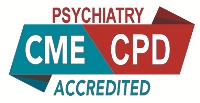Ellie Wright
EWG Research Institute LLC, USA
Title: Anti depressive effects of natural polyphenols: Resveratrol & Curcumin
Biography
Biography: Ellie Wright
Abstract
The present research aimed to investigate the mechanisms underlying the antidepressant-like effects of curcumin and resveratrol. Depression is a neuropsychiatric disease associated with wide disruptions in neuronal plasticity and increased basal ganglia glutamate. Curcumin, a natural polyphenolic compound of curcuma longa is anti-inflammatory, antioxidant, neuroprotective and antimicrobial. Curcumin decreases inflammatory cytokines interleukin 1 beta and tumor necrosis factor alpha. Curcumin has a neuroprotective effect against oxidative glutamate toxicity by inhibiting MAP kinase signaling and influencing cell-cycle regulation. The potent antidepressant property of curcumin might be attributed to its improvement of AC-cAMP pathway as well as CREB via suppressing central 5-HT(1A/1B/7). Resveratrol is anti-inflammatory, antioxidant and protector of astrocytes and modulate glial functions including glutamate uptake and glutathione. Resveratrol play a significant role between the signals pathways of NFκB, HO-1 and MAPK, p38, ERK. Some research suggests curcumin and resveratrol have neuroprotective attributes against glutamate excitotoxicity because increases the expression of sirtuin 1 (SIRT1) mediated deacetylation of PGC alpha, in addition, resveratrol down-regulated the levels of p65 and phospho-p38 MAPK.

